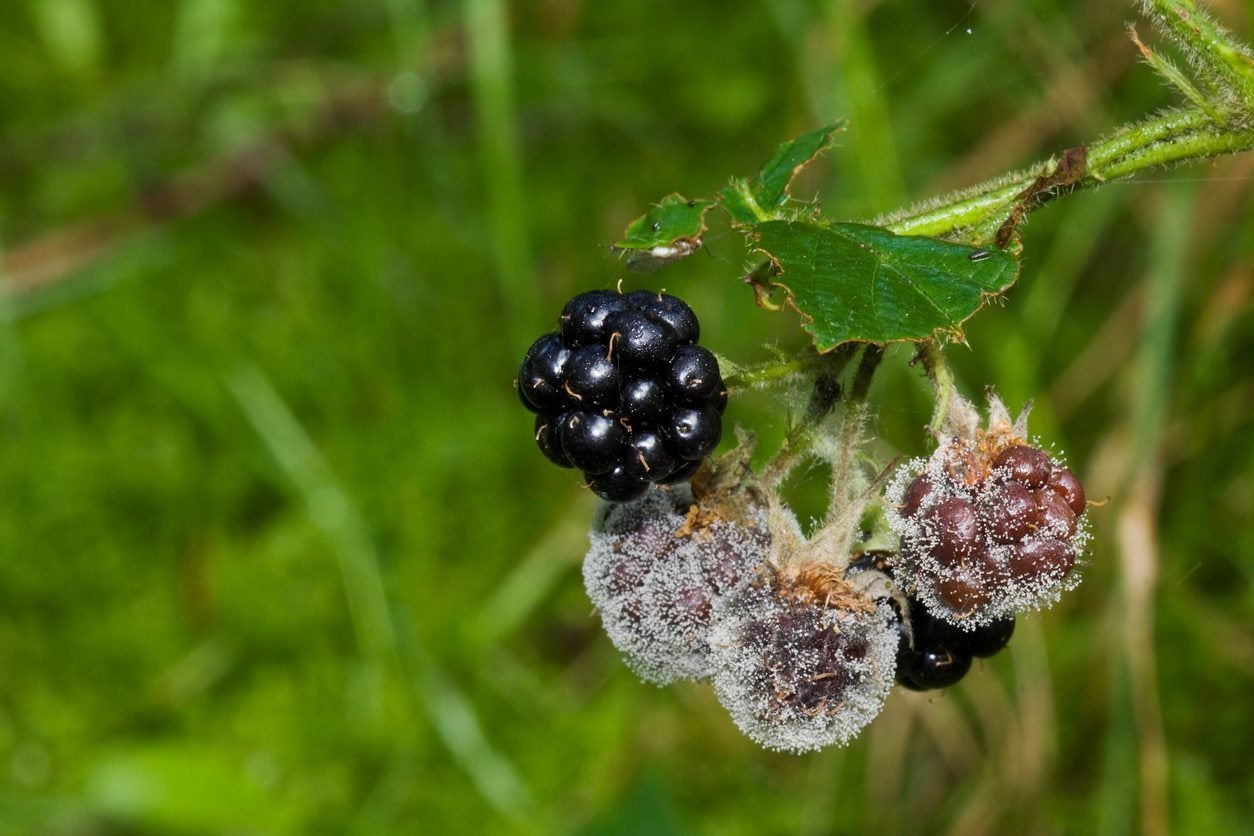My Blackberries Are Rotting: Reasons For Fruit Rot Of Blackberry Plants


Why are my blackberries rotting? Blackberries are vigorous and easy to grow, but the plants may be afflicted by fruit rot, a common fungal disease that affects various fruits and ornamental plants in moist, humid environments. Fruit rot of blackberry is difficult to control once the disease is established. Read on to learn about blackberry fruit rot causes and steps you can take to prevent this pervasive disease from occurring in your garden.
Reasons for Rotten Blackberries
Blackberry fruit rot is caused by Botrytis cinerea, a fungus that can affect nearly every part of the plant. Fruit rot favors humid environments. It is especially prevalent when weather is wet before and during blooming, and again when berries ripen. The fungus overwinters on plant debris and weeds. In spring, the spores spread via wind and water, including moisture from dew, fog, rain, irrigation water, or by direct contact with plants. Once fruit rot of blackberry finds its way into your garden, it can be treated and reduced but not eradicated.
Recognizing Blackberry Fruit Rot
If your blackberries are rotting from botrytis, the blackberry fruit rot displays as a watery rot followed by a hairy, gray, or brown fungal growth. Flowers will appear brown and shriveled. Blackberry canes may look bleached with whitish brown lesions. Small, black patches may appear on any part of the plant. Unharvested berries left on the vine become mummified.
Preventing and Treating Fruit Rot of Blackberry
Site blackberries where the plants are exposed to direct sunlight. Ensure the soil is well drained. Never plant blackberries in low areas where water pools. Spread a layer of straw or other organic mulch around blackberry plants to prevent fruit from direct contact with the soil. Space plants far enough apart to provide ample air circulation. Avoid high-nitrogen fertilizers, especially in spring. The fertilizer produces dense foliage and shade, thus preventing rapid drying. Adjust your irrigation schedule, if needed. Water blackberries with a soaker hose or drip system and avoid overhead watering. Keep the plants as dry as possible. Practice good weed control; weeds limit air movement and slow drying time of blooms and fruit. Keep the area clean. Pick blackberries frequently and don’t allow fruit to overripen. Harvest in the morning as soon as the plant is dry. Refrigerate berries as soon as possible. Discard rotten blackberries carefully. Never leave them in the garden and don’t place them on the compost pile. Chemical fungicides may be effective when used in conjunction with the above techniques. Check with your local cooperative extension office to determine which product is suitable for your area. Don’t overuse fungicides. Strains are already resistant to certain fungicides in several regions, including the Pacific northwest.
Sign up for the Gardening Know How newsletter today and receive a free copy of our e-book "How to Grow Delicious Tomatoes".

A Credentialed Garden Writer, Mary H. Dyer was with Gardening Know How in the very beginning, publishing articles as early as 2007.